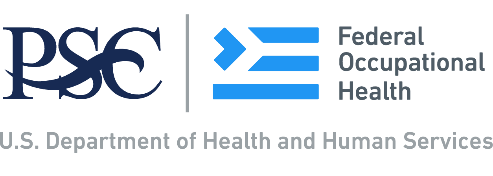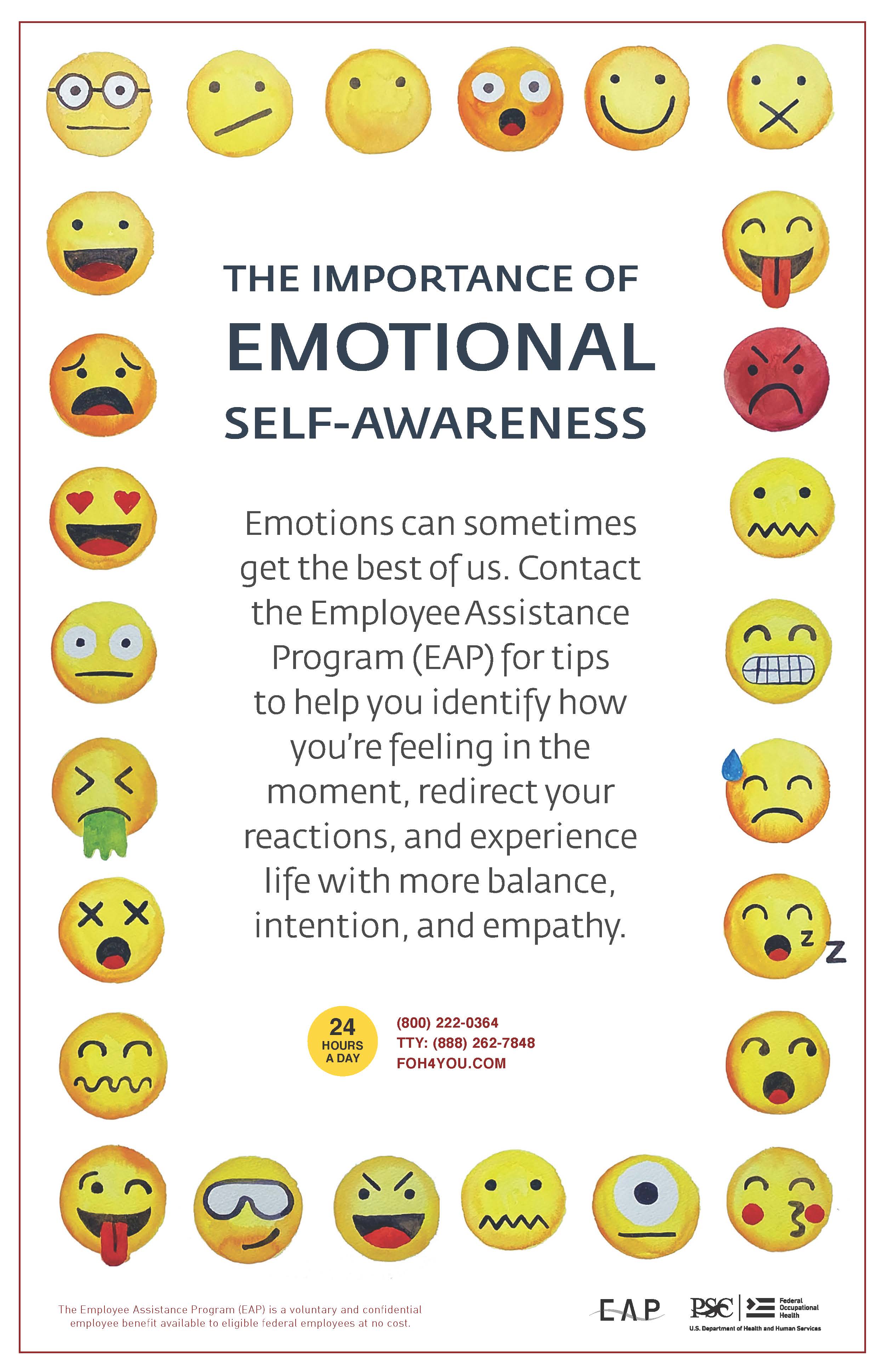
Emotions can sometimes get the best of us. The more aware of them we are, however, the better we can process and appropriately manage them. With these tips from your Employee Assistance Program (EAP), you can begin to identify how you’re feeling in the moment, adjust your reactions, and experience life with more balance, intention, and empathy.
What it means to be emotionally self-aware
Emotional awareness is being conscious of how you’re feeling, how you’re perceived, and how your behavior affects others. It involves the ability to assess and interpret your emotions objectively and regulate your behavior and reactions.
As an example, imagine being at the airport and your flight is suddenly cancelled. A passenger who isn’t emotionally self-aware might become visibly agitated or berate the gate agents while demanding answers or special treatment due to their status with the airline. As they raise their voice and create a scene, they’re oblivious to the fact that others are waiting and of the undue hostility they’re projecting.
Although equally frustrated and inconvenienced, an emotionally self-aware passenger realizes that it’s not the gate agents’ fault that the flight was cancelled and that no amount of status can change the fact that the plane isn’t going anywhere. They may wait calmly to speak with someone or use their phone to begin finding alternate options. They also have the capacity to acknowledge something positive, such as being grateful for the extra time they now have to get something to eat.
Why emotional self-awareness is important
Being cognizant of your emotional state means being more in control of your state of mind. When faced with negative external circumstances, the ability to keep your feelings in check allows you to pause, evaluate the situation, and choose a more productive reaction or shift to a more positive, empathetic view.
How to wake up your awareness
Label your feelings
The first step toward greater emotional awareness is being able to name your emotions. Labeling your feelings not only allows you to get more in tune with them, but it also releases their grip on you. The time it takes to consider how you feel provides that all-important pause that puts some space between you and your reaction and allows you to think through the situation and decide how to respond.
As you practice this, avoid using surface descriptions that are vague and could encompass a wide range of underlying emotions. Dig deep and be as specific as possible. For example, if you feel anxious, break it down further to determine whether what you really feel is afraid, uneasy, restless, or concerned. Instead of angry, perhaps frustrated, irritated, offended, or bothered better describes how you feel.
If at first you find it difficult to suspend your emotional response and label your feelings in the moment, try keeping a journal. At the end of each day or week, recall and write down who or what you encountered, how you felt and why, and what you did in response. Over time, identifying how you feel will come more naturally and easier to do in real-time.
Empathize, don’t criticize
Another way to manage your emotions is by being more empathetic and forgiving. When something or someone upsets us, our immediate tendency is to feel slighted or to look for where to assign blame. This is because we often react based on assumptions or only on what we can see, not on what we know or what might be. All you know is that there’s a long line at the pharmacy, the car in front of you is driving under the speed limit, and your coworker just made an unfriendly remark. As a result, you might become annoyed, impatient, infuriated, or offended.
Nevertheless, when we take a more empathetic view of our interactions and experiences, we’re able to put ourselves in someone else’s position and react out of understanding and compassion, even without all the facts. Maybe the pharmacist is spending extra time with a customer to explain how to take a new medication. Perhaps the person driving in front of you is delivering her best friend’s wedding cake and is taking care not to let it fall. And it could be that your coworker is going through a tough time at home with their teenager. Imagining these scenarios may make us feel appreciative, relieved, grateful, or warm-hearted.
Rein in your reactions
Lastly, remember that happiness is a choice, and how you choose to react is a big part of emotional awareness. If you find yourself getting worked up over something, take a second (and a few breaths) to reset your thoughts. Look for solutions, find something positive to focus on, and stay mindful of how your behavior and attitude affect those around you and the outcome of an otherwise negative situation.
Download the Campaign
|
Poster |
PDF Newsletter |
Plain Text Newsletter |
|
For more tips on harnessing your emotional awareness, contact the EAP. Call any time, day or night, to speak with a consultant, or explore this site's library of articles, videos, on-demand webinars, and other resources. 24 HOURS A DAY
The EAP is a voluntary and confidential employee benefit available to eligible federal employees at no cost. |


